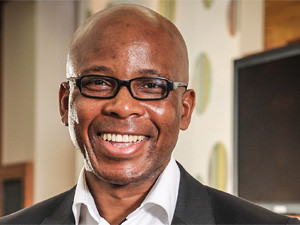
Computer users who install pirated software on their computers in the hope of saving money are in for a surprise, according to a new study released by the IDC this week.
The study, commissioned by Microsoft, found that the chances of infection by unexpected malware are one in three for consumers and three in 10 for businesses. As a result of these infections, says the IDC, consumers will spend an estimated 1.5 billion hours and $22 billion identifying, repairing and recovering from the impact of malware, while businesses will spend around $114 billion to deal with the impact of malware-induced cyber attacks.
The IDC study, titled "The Dangerous World of Counterfeit and Pirated Software", was released yesterday as part of Play it Safe, Microsoft's global initiative to raise awareness of the issues related to software piracy.
Local front
Although the IDC survey did not include SA, an informal survey run by Microsoft SA found that close to a third of respondents had unknowingly installed pirated software on their computers in the past two years, resulting in considerable financial loss and time spent recovering from the impact.
"This is costing businesses time and money to fix problems relating to pirated software - time and money that could have been spent on growing small businesses, employing employees and adding to the economy," says Mteto Nyati, MD of Microsoft SA.
However, says Nyati, the impact of piracy goes beyond business and consumers. He notes that the livelihoods of local software businesses and computer dealers are also being impacted by pirates, as their activities are eating into their business revenue.
"If we're going to be serious about building small businesses and creating employment opportunities in SA, we have to work actively to stamp out piracy."
Figures from Business Software Alliance have revealed that unlicensed software cost South African businesses over R5.7 million in 2012, up R800 000 from 2011 (about a 16% rise).
Amanda Lotheringen, from SA's Companies and Intellectual Property Commission (CIPC), says the commission has a mammoth task ahead to protect businesses and the individual software developer's rights to create intellectual property.
She says it is important for companies like Microsoft to assist the commission in raising awareness and educating consumers on the impact piracy has on the country's economy - as well as on the individual consumers.
Virus varieties
The study found two main sources of counterfeit software: either it is pre-loaded on computers and sold by unscrupulous dealers, or downloaded from the Internet.
Breaking it down
The IDC's study analysed 270 Web sites and peer-to-peer networks, 108 software downloads, and 155 CDs or DVDs, and interviewed 2 077 consumers and 258 IT managers or chief information officers in Brazil, China, Germany, India, Mexico, Poland, Russia, Thailand, the UK and the US.
Of this, 78% of the software downloaded from Web sites or P2P networks included some type of spyware, while 36% contained Trojans and adware.
David Finn, associate general counsel at Microsoft's Cybercrime centre, says the reality is that counterfeiters are tampering with the software code and lacing it with malware.
"Some of this malware records a person's every keystroke - allowing cybercriminals to steal a victim's personal and financial information. Or it remotely switches on an infected computer's microphone and video camera, giving cybercriminals eyes and ears in boardrooms and living rooms."
Study stats
Highlights of the IDC's pirated software study are as follows:
* 64% of respondents who had used counterfeit software experienced security issues;
* 45% of the time, counterfeit software slowed their PCs, and the software had to be uninstalled;
* 48% of respondents noted that their greatest concern with using counterfeit software was data loss;
* 29% were most concerned with identity theft;
* In SA, 82% of respondents who had installed non-genuine software had experienced security and system-related issues;
* Over 70% of local respondents collectively highlighted the loss of data, identity theft and affected computer performance as the biggest concern;
* Only 58% of local respondents said they always install security updates to keep their software up to date; and
* In the past two years, over 43% of respondents reported that they have knowingly or unknowingly borrowed pirated software to install, while 28% downloaded it from the Web or from a peer to peer computer network.
Corporate computers
The IDC white paper also explored the surprising level of end-user software installations made on corporate computers, exposing another method for the introduction of unsecure software into the workplace ecosystem. Although 38% of IT managers acknowledge that it happens, 57% of workers admit they install personal software onto employer-owned computers.
Nyati says the reality is that more and more employees are downloading software on to their computers at work. According to Microsoft SA's local survey, up to 40% of South African employees are guilty of this.
"Sixty-five percent of IT managers agree that user-installed software increases an organisation's security risks. For many in the enterprise, user-installed software may be a blind spot in ensuring a secure network."
Share